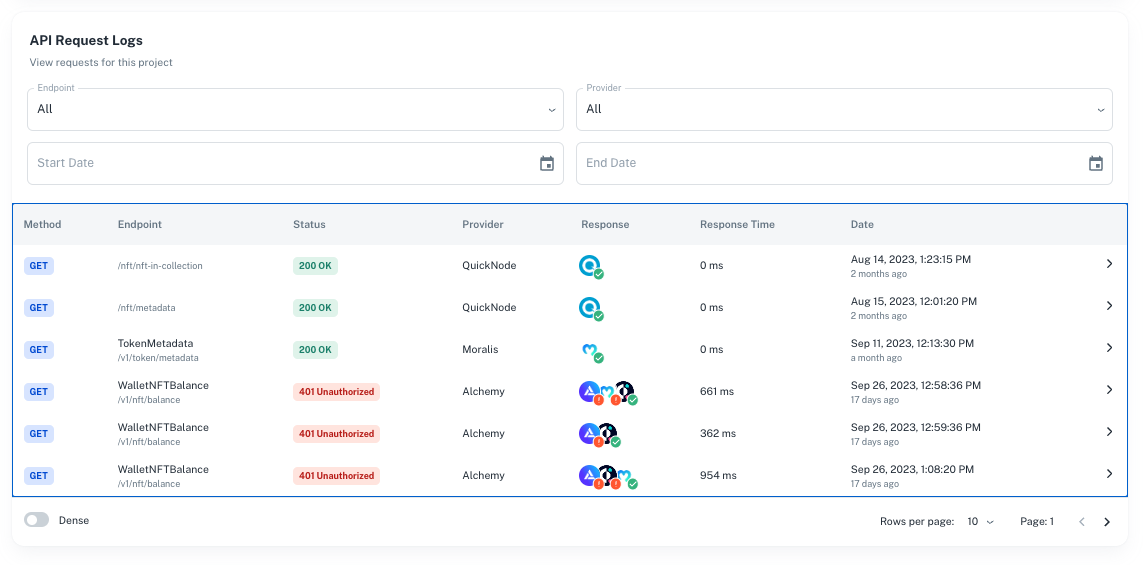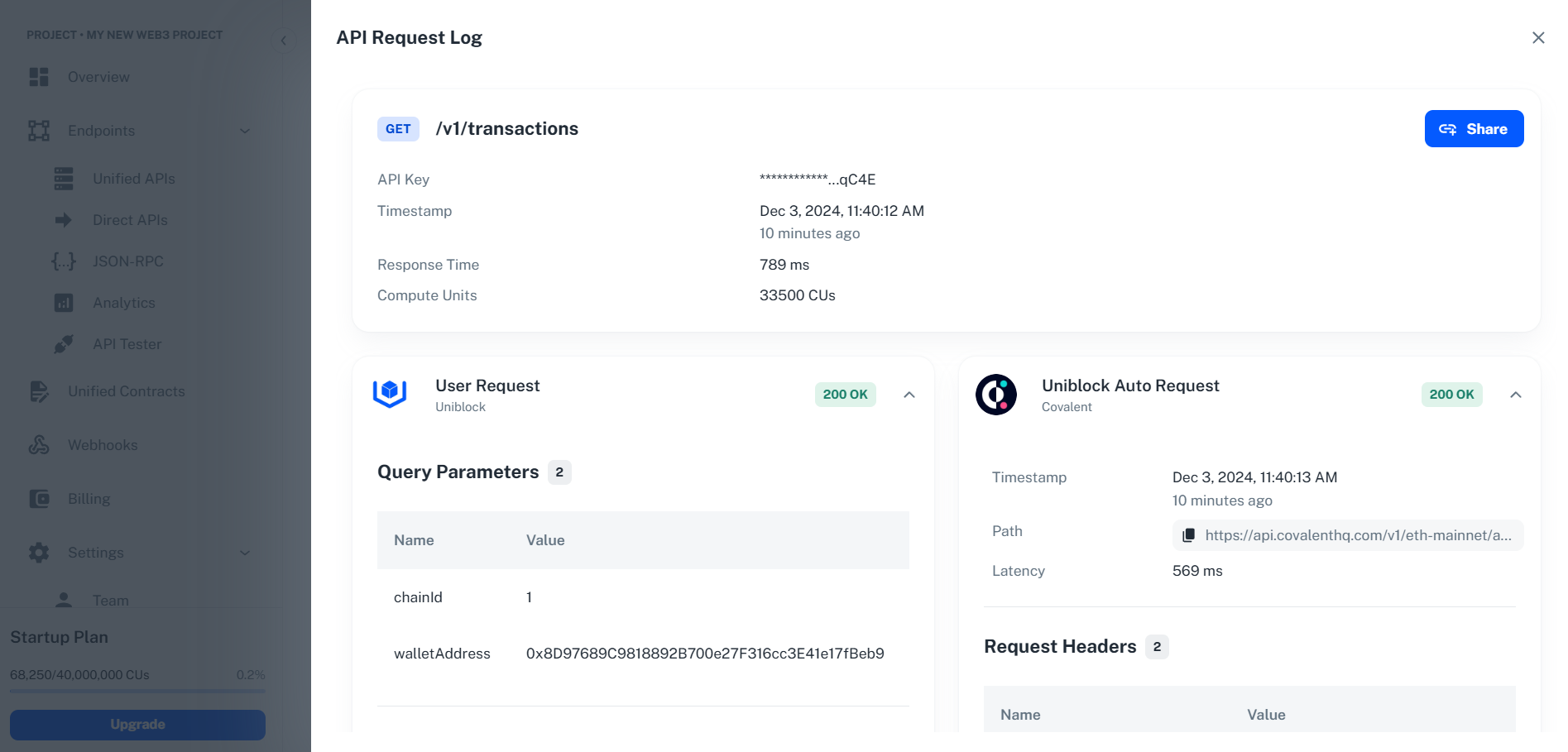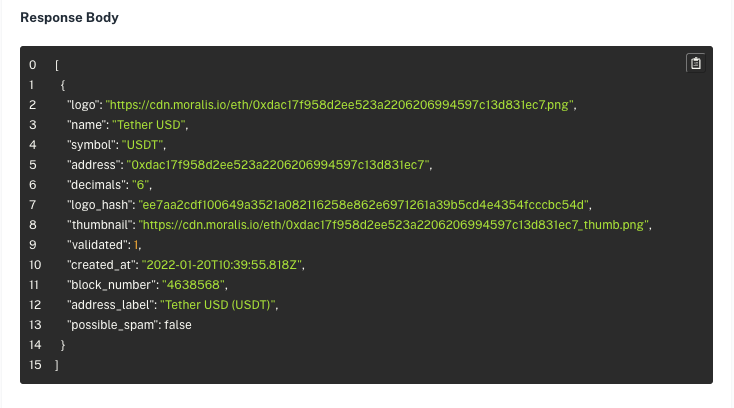API Logs
API logs are crucial for understanding the behavior, performance, and health of your applications.
Here, we guide you through how Uniblock provides detailed logging and how you can access and interpret these logs for optimal API performance.
Why API Logs Matter? 🧐
API logs offer visibility into the operation of your application. By analyzing API logs, you can:
- Identify and diagnose issues.
- Monitor API health and performance.
- Track user activity and patterns.
- Ensure security by detecting malicious activities.
Reading the Logs 📖

API Logs Table near the bottom of the Analytics Tab in the Dashboard
Each log entry provides a number of requests made to external provider according to fallback list and the request detail of them:
- Method: the http request method, such as
GETorPOST. - Endpoint: Which API endpoint was accessed.
- Status: Success or error status code.
- Provider: The provider that provided the final response.
- Response: The provider(s) responses that attempted the API call.
- Response Time: How long the API took to respond, also as known as latency.
- Date: The date and time when the request was made.
Detailed API Request Logs 📝

Clicking into a log entry provides in-depth log information for each API request to provide a transparent view into the interactions between your application and our system, as well as a series of requests attempted with external provider according to the fallback list. Here's a breakdown of the key components in our detailed logs for each request:
-
HTTP Method: Such as
GET, indicating the type of request made. -
Endpoint Name: A brief descriptor like
TokenMetadataoffering context on the purpose of the request. -
Endpoint Path: The specific path like
/v1/token/metadataaccessed on our servers. -
Timestamp: The exact time when the request was made.
-
Response Time: Duration taken by our server to process and respond to the request.
-
Headers: These are meta-data associated with the request. It includes various fields like:
Host: The domain making the request.User-Agent: Information about the client system and browser.Accept: The type of content expected in response.- ... and many others.
-
Query Parameters: These are additional data sent with the request to provide context or specify a certain behavior.
-
Request Body: The actual data sent in a
POSTorPUTrequest. -
Response Headers & Body: Meta-data and actual data returned from our provider(s) in response to the request. There may be multiple in the case that priority list gets engaged.

Example Response Body for token/Metadata with Moralis.
By diving deep into these logs, developers can quickly troubleshoot, optimize, and secure their application's interactions with Uniblock.
Filtering and Searching 🔍
Use the filter options to narrow down logs based on specific criteria, such as providers, status codes, endpoints, or time frames. The search bar allows you to quickly find logs containing specific keywords or error messages.
Log Retention Policy 📅
Uniblock retains API logs for 90 days. If you require extended retention or need to access logs older than 90 days, please reach out to our support team.
Updated 28 days ago